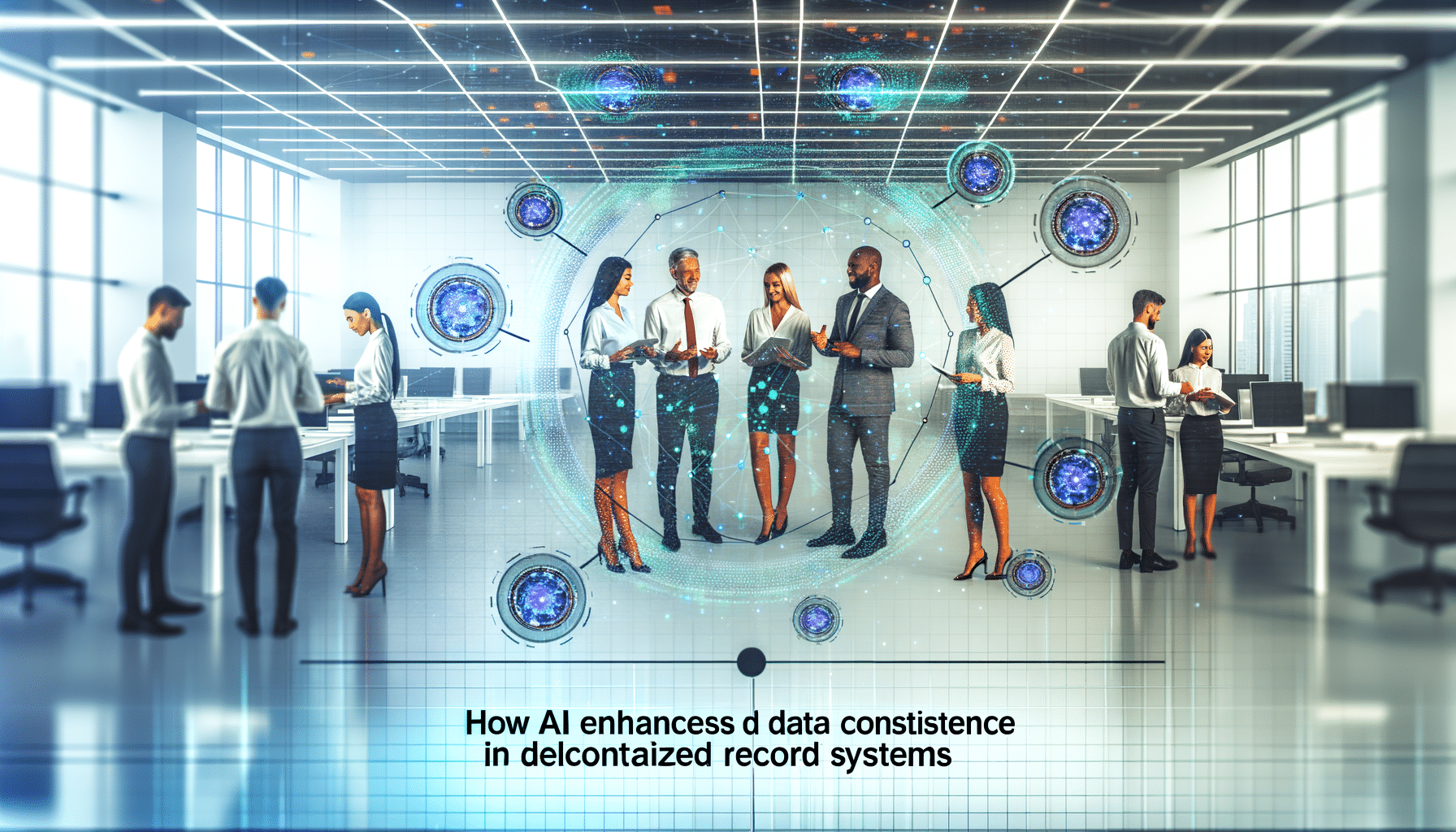- Decentralized Systems
- December 8, 2023
How Decentralized Identifiers (DIDs) Can Revolutionize Patient Record Access

Embracing the Future of Healthcare with Decentralized Identifiers
The challenge of managing patient records in healthcare is nothing new. For years, we’ve seen the struggles with data fragmentation, concerns over privacy, and frustration from patients and medical professionals alike. As the founder of RecordsKeeper.AI, I’ve witnessed firsthand how the decentralization movement, particularly the emergence of Decentralized Identifiers (DIDs), is poised to transform patient record access, creating a more connected and secure future for healthcare.
Understanding Decentralized Identifiers (DIDs)
Decentralized Identifiers, or DIDs, are a groundbreaking concept designed to secure and streamline identity management across various platforms. Unlike traditional identifiers tied to central entities like governments or corporations, DIDs are self-sovereign, providing individuals control over their digital presence.
In the healthcare sector, this translates directly to patient records. Instead of bouncing between different hospitals, clinics, or insurance databases, a DID can serve as a unique, secure key that unlocks access to a patient’s entire medical history, offering an unprecedented level of accessibility and privacy.
The Current State of Patient Record Access
Patient records today are often scattered across various systems, each with its proprietary protocols and security measures. The journey to access one’s complete medical history is cumbersome, fraught with time lags, potential errors, and security breaches. These inefficiencies are not merely administrative burdens; they can have direct consequences on patient care and treatment outcomes.
The introduction of DIDs into this landscape promises not just incremental improvements but a fundamental reimagining of how we handle patient records. With decentralization, there’s an opportunity to eliminate the silos and create a seamless, unified approach to record management.
Benefits of DIDs in Healthcare
The implementation of DIDs for managing patient records brings numerous benefits:
Decentralization in Action: A Real-World Scenario
Imagine a patient who has recently moved to a new city and needs immediate medical attention. Without a system like DIDs, they face the tedious task of contacting previous healthcare providers, filling out paperwork to transfer records, and waiting for the information to be updated in the new provider’s system.
With DIDs, the patient simply authorizes the new healthcare provider access to their medical history using their decentralized identifier. The provider can access an up-to-date, comprehensive record, allowing for quicker and more informed decision-making.
The Challenge of Decentralization
Despite the clear benefits, adopting DIDs in healthcare is not without its challenges. From technical barriers to regulatory considerations, transitioning to a decentralized system requires significant investment in infrastructure and a shift in how organizations handle identity and access management.
However, the long-term rewards of implementing such a system vastly outweigh these initial hurdles. Encouraging widespread adoption through strategic partnerships and pilot programs can gradually overcome these barriers, paving the way for a new era in patient care.
Conclusion
Decentralized Identifiers represent a paradigm shift in patient record access, promising increased security, efficiency, and patient empowerment. As we venture further into this exciting frontier, I invite stakeholders across the healthcare spectrum—policymakers, providers, and patients—to explore the transformative potential of DIDs.
For us at RecordsKeeper.AI, this journey is part of a broader commitment to innovation in record management. By harnessing the power of decentralization, we aim to not only modernize but revolutionize how records are handled, creating a more secure, efficient, and patient-friendly healthcare ecosystem.
Stay engaged with this transformative journey by following me, Toshendra Sharma, as I share more insights and updates on how technology can redefine record management in the digital age. We are at the forefront of an exciting revolution; let’s embrace it together.
Toshendra Sharma is the visionary founder and CEO of RecordsKeeper.AI, spearheading the fusion of AI and blockchain to redefine enterprise record management. With a groundbreaking approach to solving complex business challenges, Toshendra combines deep expertise in blockchain and artificial intelligence with an acute understanding of enterprise compliance and security needs.
Related Posts

Decentralized Health Data Management: Benefits and Challenges
Explore the pros and cons of decentralized healthcare record management.
- November 6, 2023

How AI Enhances Data Consistency in Decentralized Record Systems
Learn how AI maintains data consistency across decentralized record systems.
- May 31, 2023
Archives
- January 2025
- December 2024
- November 2024
- October 2024
- September 2024
- August 2024
- July 2024
- June 2024
- May 2024
- April 2024
- March 2024
- February 2024
- January 2024
- December 2023
- November 2023
- October 2023
- September 2023
- August 2023
- July 2023
- June 2023
- May 2023
- April 2023
- March 2023
- February 2023
- January 2023
- December 2022
- November 2022
- October 2022
- September 2022
Want to get more content like this?
Signup to directly get this type of content to your inbox!!
Latest Post
Document Control for Equipment Maintenance
- January 20, 2025
Managing Records for Multiple Clients
- January 19, 2025
Handling Conference Documentation
- January 18, 2025
Setting Up Department Record Reviews
- January 17, 2025





